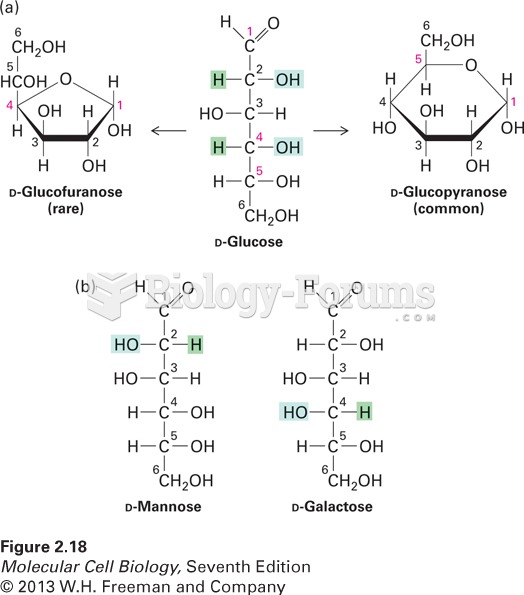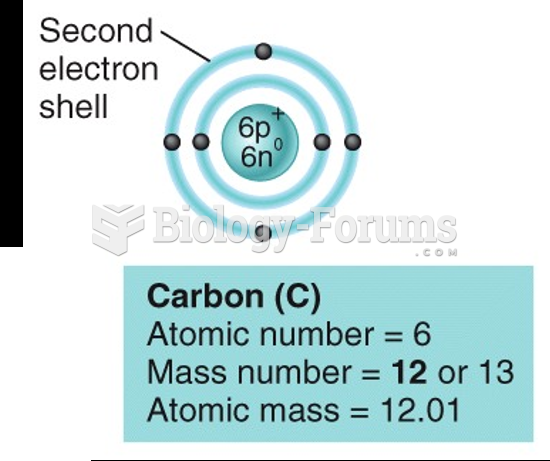|
|
|
Asthma cases in Americans are about 75% higher today than they were in 1980.
The liver is the only organ that has the ability to regenerate itself after certain types of damage. As much as 25% of the liver can be removed, and it will still regenerate back to its original shape and size. However, the liver cannot regenerate after severe damage caused by alcohol.
The toxic levels for lithium carbonate are close to the therapeutic levels. Signs of toxicity include fine hand tremor, polyuria, mild thirst, nausea, general discomfort, diarrhea, vomiting, drowsiness, muscular weakness, lack of coordination, ataxia, giddiness, tinnitus, and blurred vision.
About 3.2 billion people, nearly half the world population, are at risk for malaria. In 2015, there are about 214 million malaria cases and an estimated 438,000 malaria deaths.
One way to reduce acid reflux is to lose two or three pounds. Most people lose weight in the belly area first when they increase exercise, meaning that heartburn can be reduced quickly by this method.
 Feedback mechanisms of the thyroid gland: (1) stimulus; (2) release of TSH; (3) release of thyroid h
Feedback mechanisms of the thyroid gland: (1) stimulus; (2) release of TSH; (3) release of thyroid h
 In 1839 Mary Cragin, at the age of twenty-nine, became a convert to John Humphrey Noyes’s “communism
In 1839 Mary Cragin, at the age of twenty-nine, became a convert to John Humphrey Noyes’s “communism
 Feelings of competence, independence, and relatedness lead to a sense of overall well-being in any ...
Feelings of competence, independence, and relatedness lead to a sense of overall well-being in any ...




